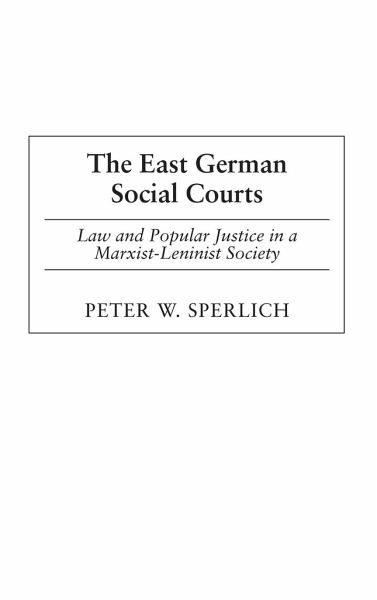
The East German Social Courts
Law and Popular Justice in a Marxist-Leninist Society

PAYBACK Punkte
44 °P sammeln!
An interesting read for professional jurists, court administrators, and scholars concerned with lay adjudication or East German legal institutions, this book provides an account of the social courts of the German Democratic Republic (GDR). Although the East German system was corrupt and oppressive, the social courts were an innovative and successful experiment. Rooted in Marxist-Leninist legal doctrine, these courts handled thousands of minor civil disputes and petty criminal offenses each year. The judges and jurists who worked at these courts were lay people and did not receive an pay for th...
An interesting read for professional jurists, court administrators, and scholars concerned with lay adjudication or East German legal institutions, this book provides an account of the social courts of the German Democratic Republic (GDR). Although the East German system was corrupt and oppressive, the social courts were an innovative and successful experiment. Rooted in Marxist-Leninist legal doctrine, these courts handled thousands of minor civil disputes and petty criminal offenses each year. The judges and jurists who worked at these courts were lay people and did not receive an pay for their services. This book delves into the history of the social courts and their success with both the government and the citizens of East Germany. It also presents the courts as an instructive example of an inexpensive, speedy, and popular legal institution that should be studied by today's court systems. The social courts of the GDR had a wide range of primary and auxiliary functions. Some of these functions were to relieve the state courts of the need to deal with a variety or minor civil and criminal cases, give ordinary citizens an important role to play in the administration of justice, raise the citizens' legal knowledge and consciousness, and tie citizens more closely to the regime through participatory acts. Offering both commendations and criticisms of the social courts, this book seeks to provide a record of the structures, functions, interactions, decisions, and personnel of the social courts, along with a comparative analysis to other legal systems, such as those of the United States of America.













